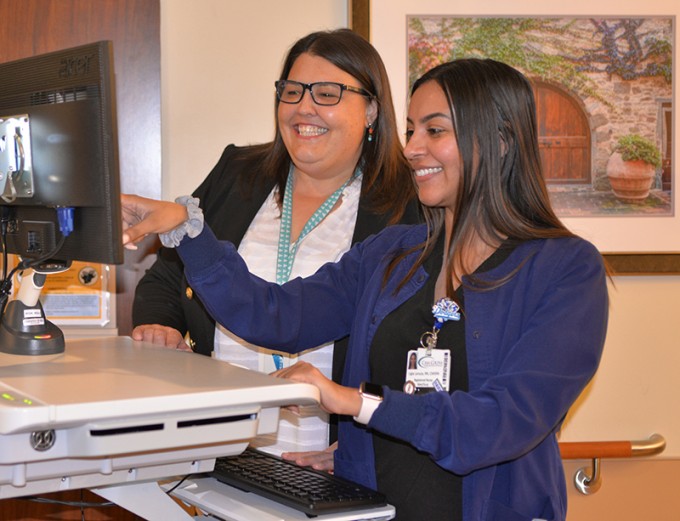CNO Roundtable 2020
New Grads at the Bedside
Q: Do you think new grad RNs should earn their stripes in bedside med/surg before moving on to other specialties?

Katie Hughes, RN, MSN, CRRN
(pictured above, left)
Chief Nursing Officer
Casa Colina Hospital and Centers for Healthcare
I am often impressed by the level of critical thinking and knowledge new graduates possess and have no doubt that a new grad can be successful moving straight into specialty practice. However, I still believe that med/surg is a great place for nurses to start out. A nurse who starts in a specialty area of nursing may be limited later if they want to pursue a different career course.
Med/surg provides exposure to a wide variety of illnesses and interventions and is great for honing time-management and patient assessment skills. It provides a solid foundation on which to build a career in nursing. I think this is particularly important for nurses who plan to pursue a career as an advanced practice nurse. I certainly believe my experience working in med/surg — first as a CNA and later as a nurse — has helped me to be a better leader.
Jennifer R. Castaldo, RN, BSN, MSHA, NEA-BC
Vice President / Chief Nursing Officer
Henry Mayo Newhall Hospital
My message to new registered nurses drawn to a specific specialty is quite simple: A nurse’s intuition is a powerful force. It will help you to make better decisions, regardless of where and in what specialty you choose to practice. I hope that all new graduates entering the profession will have encountered professors and mentors who understand the importance of imagination and intuition. Whether you are entering the workforce for the first time or a seasoned RN involved in training others, your intuition is your most valuable asset. My role is to ensure that all our registered nurses, including our new graduates, are supported and receive the training they need to provide the best care possible for the patient population they wish to serve, whatever their individual specialties.




